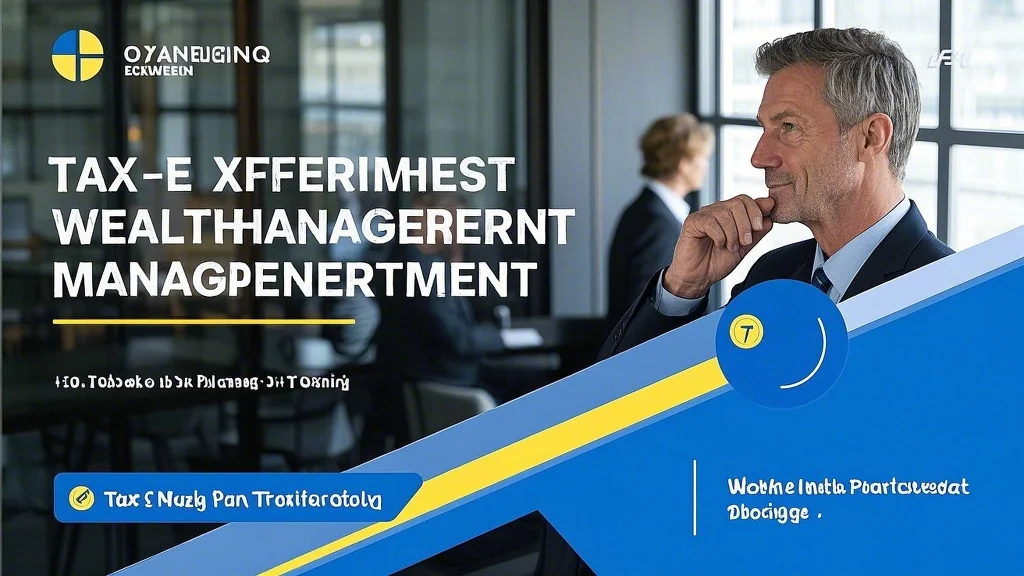Mastering Tax-Efficient Wealth Management in 2024
Sophisticated tax-efficient wealth management has become the cornerstone of preserving and growing family wealth in today’s complex financial landscape. The most effective strategies go beyond basic tax-loss harvesting to incorporate multi-year income smoothing, strategic charitable giving, and coordinated withdrawal strategies across different account types. High-net-worth families are increasingly turning to advanced techniques like installment sales, deferred compensation arrangements, and opportunity zone investments to defer or reduce tax liabilities. What separates elite tax management is its proactive nature – anticipating life events like retirement, business sales, or inheritance to optimize tax outcomes years in advance. The current environment of potential tax rate increases makes these strategies even more valuable, as every dollar saved in taxes can compound significantly over time.
One of the most significant developments in tax-efficient wealth management is the concept of “tax alpha” – generating additional after-tax returns through careful planning rather than investment outperformance. This might involve strategically timing the realization of capital gains during low-income years or coordinating Roth conversions with market downturns when asset values are depressed. Another critical innovation is the integration of state-specific tax considerations, particularly for clients who split time between multiple jurisdictions or who might relocate in retirement. The most comprehensive approaches also consider the interplay between income taxes, estate taxes, and generation-skipping transfer taxes to create truly optimized multi-generational plans. With the tax landscape constantly evolving, maintaining flexibility in these strategies is crucial to adapt to new legislation and changing personal circumstances.
Comprehensive Tax Planning for High-Net-Worth Individuals
Effective tax planning for substantial wealth requires looking at the entire financial picture through a tax lens. Business owners need strategies that optimize compensation structures to balance current tax benefits with long-term wealth transfer goals. Investors with concentrated stock positions require careful planning around stock option exercises and restricted stock unit (RSU) vesting events. What distinguishes exceptional tax planning is its integration with investment decisions – understanding how asset location (placing investments in the most tax-appropriate accounts) can significantly enhance after-tax returns over time. High-income professionals often benefit from deferred compensation plans and defined benefit plans that provide current tax deductions while building retirement assets.
Modern tax planning also addresses several often-overlooked opportunities. Donor-advised funds allow for “bunching” charitable deductions in high-income years while maintaining consistent giving levels. Health savings accounts (HSAs) offer triple tax advantages for those eligible to contribute. Captive insurance arrangements can provide legitimate business deductions while creating protected pools of capital. The most robust tax plans include regular reviews (typically quarterly for high-income clients) to monitor estimated tax payments, assess the impact of recent transactions, and identify new planning opportunities as laws and personal circumstances change. With the increasing complexity of tax codes, having a team that includes both wealth managers and tax professionals has become essential for comprehensive planning.

Integrating Wealth Protection with Tax Efficiency
Sophisticated wealth protection strategies can work hand-in-hand with tax planning to preserve family wealth across generations. Irrevocable life insurance trusts (ILITs) remove policy proceeds from taxable estates while protecting them from beneficiaries’ creditors. Family limited partnerships (FLPs) can provide valuation discounts for gift and estate tax purposes while maintaining family control over assets. What makes these strategies particularly powerful is their dual benefit – they simultaneously reduce tax liabilities and create barriers against potential threats to family wealth. Domestic asset protection trusts (DAPTs), available in certain states, allow grantors to be discretionary beneficiaries while still shielding assets from creditors.
One of the most valuable aspects of wealth protection planning is its ability to lock in current exemptions before potential legislative changes. With the federal estate tax exemption scheduled to sunset in 2025, many families are using spousal lifetime access trusts (SLATs) and other advanced techniques to utilize today’s higher exemptions. Another critical consideration is the coordination of asset protection structures with state income tax laws, as some trust-friendly jurisdictions also have favorable tax treatment. The most comprehensive protection plans also address digital assets, ensuring proper titling and access protocols for cryptocurrencies and other online holdings that might otherwise be overlooked in traditional estate planning.
Tax-Aware Investment Strategies for Optimal After-Tax Returns
Modern investment strategies must consider tax implications at every decision point to maximize after-tax wealth. Tax-sensitive asset location – placing income-generating investments in tax-deferred accounts and growth-oriented assets in taxable or tax-free accounts – can significantly enhance long-term returns. Tax-lot optimization, where investors specify which shares to sell when harvesting gains or losses, provides another lever for tax control. What distinguishes elite investment management is its integration of tax considerations throughout the investment process, not just as an afterthought during annual tax preparation.
One of the most powerful developments in investment strategies is the use of direct indexing in taxable accounts, which allows for more precise tax-loss harvesting than traditional ETFs or mutual funds. Another innovative approach is the strategic use of qualified dividend income (QDI) and long-term capital gains to stay within favorable tax brackets. Private placement life insurance (PPLI) can provide tax-free growth for alternative investments that would otherwise generate unrelated business taxable income (UBTI). The most sophisticated strategies also consider the tax implications of investment expenses, ensuring deductions are maximized where possible and that fee structures align with current tax treatment rules.
Leveraging Professional Wealth Management Services
Comprehensive wealth management services now integrate tax efficiency into every aspect of financial planning. The best firms offer coordinated teams that include investment managers, tax professionals, and estate planning attorneys working together to optimize after-tax outcomes. For business owners, this might involve structuring mergers or acquisitions in the most tax-advantageous manner. For executives with equity compensation, it could mean coordinating option exercises with other income events to minimize overall tax burden. What sets apart elite wealth management is its proactive approach – identifying tax-saving opportunities before transactions occur rather than trying to mitigate consequences afterward.
Modern wealth management services also provide sophisticated tax reporting and projection tools that help clients make informed decisions throughout the year. Tax-sensitive withdrawal strategies for retirees can significantly extend portfolio longevity by minimizing tax drag. Family office services often include consolidated tax reporting across multiple entities and jurisdictions, providing clarity in complex financial situations. Another valuable service is tax transition planning for life events like divorce, inheritance, or relocation to different states – ensuring these changes don’t trigger unnecessary tax liabilities. With increasing scrutiny from tax authorities worldwide, having professional guidance has become essential for navigating audits, disclosures, and compliance requirements.
Synthesizing Tax Efficiency Across Your Financial Life
When properly coordinated, tax-efficient wealth management, comprehensive tax planning, robust wealth protection, tax-aware investment strategies, and professional wealth management services create a financial approach that maximizes after-tax wealth across generations. The most successful implementations view tax efficiency not as a year-end activity but as an ongoing process woven into every financial decision. They balance current tax savings with long-term wealth goals, maintain flexibility to adapt to changing laws, and always consider the human element – ensuring strategies align with family values and personal comfort levels.
Families that achieve the greatest tax efficiency are those who approach it as a partnership between themselves and their advisors. They maintain organized records, communicate openly about life changes that might affect tax situations, and invest time in understanding the rationale behind recommended strategies. In an era of increasing tax complexity and potential rate changes, this proactive, integrated approach to tax management offers the best path to preserving family wealth and achieving long-term financial objectives.
